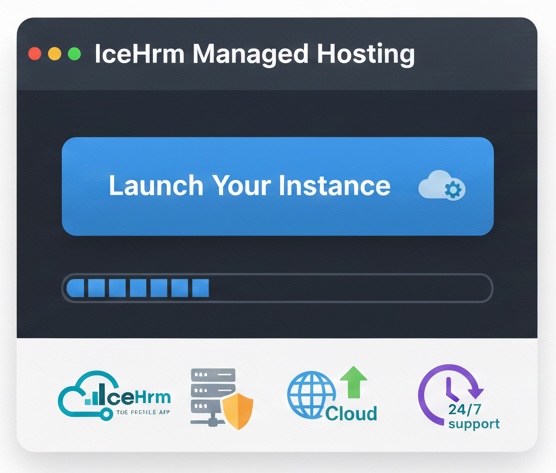
Focus on your people, not your servers. IceHrm Managed Hosting provides enterprise-grade security, automatic backups, and seamless updates so you're always running the latest version. Get instant access to all marketplace extensions and enjoy 99.9% uptime with our fully managed infrastructure.
Reduce sick leave in your team.
Do you ever get frustrated with workers who call in sick too often? Or are you more concerned about sick people who DON'T stay at home, and spread illness to other workers?
Sick leave for staff, whether it's used for legitimate or not-so-legitimate reasons, has become a major problem for many organizations and industries worldwide. Each year, it costs companies around the world billions of dollars. What's more, in many countries, public sector workers take a considerably higher proportion of sick days than their private sector counterparts, meaning that it's even more costly for governments and for tax payers.
The United States is unusual among developed countries, because it doesn't require organizations to pay for sick leave, although many state and local governments are now considering the need for legislation in this area. However, some companies are starting to reduce sick pay to offset increased health care insurance costs for their workers.
So what do all of these sick days really cost your company?
Sick days delay work, causing projects to fall behind schedule. They create stress for other workers, who must make up for lost productivity. And, because other people may need to work overtime to make up for the time lost, they add to overtime bills.
On the other hand, some workers don't receive sick pay. If they're paid only for the actual hours they work, they may feel they can't afford to stay home when they're sick. If they come to work, they may pass their illness to co-workers. This, in turn, makes the situation much worse, because even more workers then become sick which can cause more "down time" and increased costs in medical care.
Sick pay policies are generally designed to treat people fairly and discourage abuse, but many workers still don't use them properly. We'll look at the reasons for this, and we'll suggest some practical steps that companies can take to reduce absenteeism.
There are two main reasons for high rates of absenteeism: (1) an abnormal amount of illness, and (2) abuse of the system by workers who call in sick when they're actually perfectly healthy. Causes for one or both of these may be as follows:
There are many ways of viewing the sick leave problem, and each instance has its own individual nature. Therefore, finding a standard solution that works for all situations is impractical. So, start by investigating the causes of above-average sick leave in your company. This will help you design the interventions that are most likely to be successful.
While high rates of absenteeism tend to attract a lot of management attention, it's worth remembering that most organizations also benefit from individuals and groups who rarely miss a day of work.
Luck is a big part of whether or not people get the flu or catch a cold each year. However, a combination of healthy lifestyles and a positive office environment can reduce your workers' time off sick.
These solutions consider the workers' needs, and they also help ensure that your team will be more enthusiastic and dedicated in return.
To approach the issue proactively, you not only want to seek the cause of the overall problem, but also consider individual cases. The best way to avoid abuse of your sick policy is usually to promote an attitude of compassion workers should feel as though their well-being matters to you. So, to reduce absenteeism, make company policies clear. Be available to answer any questions and also offer workshops that teach staff how to take personal responsibility for improving their lives.
If you take a consistent, firm, and compassionate approach to sick leave management, you should be able to deal effectively with the employees who do seem to be taking advantage. As with all employee feedback issues, communicate your expectations clearly, and follow through. Working together to find a solution allows you to address the problem and enhance employee commitment and engagement.
Sick leave issues are varied and complex.
Many companies around the world guarantee sick pay for workers who are ill, though not every country requires it.
Where people are not paid, this can cause sick people to come to work, which can lead to poor productivity as well as spreading illness to other workers.
Abuse of paid sick leave can have serious financial costs. Companies should be willing negotiators and develop an understanding with their team members about the issue. Organizations are more likely to succeed if they determine, and address, the root cause of any abuse instead of creating strict rules or rewards that may not be effective.
This site teaches you the skills you need for a happy and successful career; and this is just one of many tools and resources that you'll find here at Mind Tools. Subscribe to our free newsletter, or join the Mind Tools Club and really supercharge your career!
Add this article to My Learning Plan Mark article as Complete Rate this resource